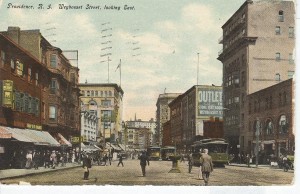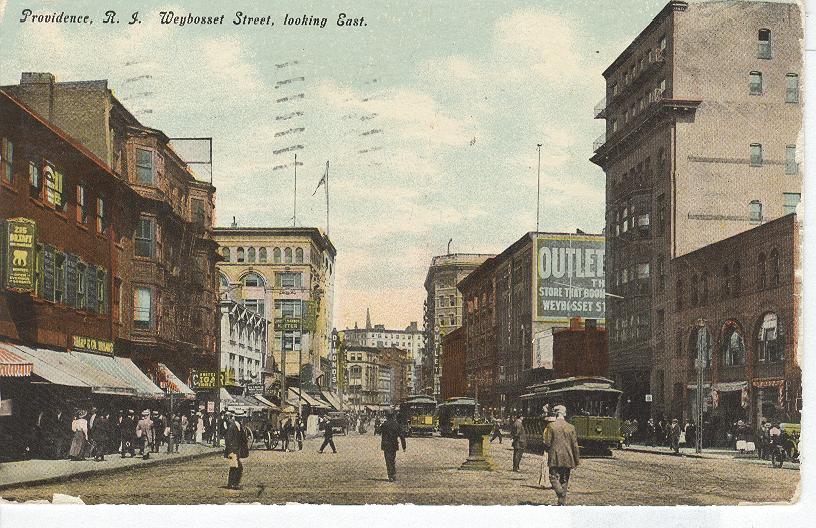 Before 1986, did you use office supplies? Did you buy ribbons for your typewriter, pencils, carbon paper, and blotter paper? Did you buy floppy disks, plotter pens, and printer paper? Or did you just find them on the street?
Before 1986, did you use office supplies? Did you buy ribbons for your typewriter, pencils, carbon paper, and blotter paper? Did you buy floppy disks, plotter pens, and printer paper? Or did you just find them on the street?
I ask because I keep reading that Mitt Romney created 90,000 jobs by helping Tom Stemberg found Staples, the office supply giant. But it seems that only 90,000 people work at Staples now, so how does that make sense that they created 90,000 jobs?
Maybe I’m not being clear. I very clearly remember the delightful E.L. Freeman, Stationer’s, on Weybosset Street in Providence. I loved the bins of pens, the shelves that went up to the ceiling, and the way the guys who worked there knew pretty much everything I wanted to know about what was available and what it was good for. When I didn’t have time to go all the way downtown, there was a smaller stationer’s on Thayer Street, at the lower end, and another up on Hope.
These places are all gone now, gone the way of the carbon paper they sold, casualties in the price war that Staples won. Staples was a stupendously successful investment for Bain Capital, but it was successful precisely because it upended the status quo of stationery retail. The jobs those little stores provided for the people who ran them and worked in them are also gone with that carbon paper. So shouldn’t the number of jobs Staples “created” be the net, not the gross? Certainly Staples created jobs for itself, but didn’t it also cause some jobs to be lost?
The Census Bureau has an answer. In 1987, retail and wholesale merchants of stationery and office furniture employed 175,055 people. In 2007, they employed 213,653. So apparently the industry added only 38,598 jobs between Staples being founded and 2007.
And, of course, the nation’s population grew during that time. If we account for that, it appears that we might have about 4,000 more jobs now if Staples had never been invented. And the jobs that remain aren’t as good. Payrolls in these trade sectors ran about $19,700 per employee in 1987. As of 2007, the number is $26,500, about one-third less after correcting for inflation. In other words, Census data implies that the introduction of big-box retail in the stationery sector cost us jobs and made the remaining jobs worse. No wonder Republicans in Congress are attempting to slash the Census Bureau’s budget.
This is, of course, the way our economy works, the “creative destruction” Joseph Schumpeter was so fond of. I liked Freeman’s, but Staples is certainly less expensive. You can think that’s a tragedy for workers or you can think it a boon to consumers. I don’t have to express an opinion about that to know that it’s dishonest to ignore what really happened to the stationery market when I’m counting jobs.
And here’s the real conflict between being successful at business and being successful at government. In business, you’re only responsible for your team, while in government you’re responsible for everyone. Staples doesn’t have to account for the Freeman employees who lost their jobs. To them, 90,000 new jobs is a clear win, and they are free to ignore the losers. But those people who lost their jobs don’t disappear. The accounting for the nation as a whole is a very different thing and has to account for both the winners and losers.
I don’t know about you, but I am mightily tired of hearing people who became rich in business touting their experience as if it’s relevant to running a nation or a state. I don’t want a president or a governor who measures jobs gained and ignores jobs lost. I don’t want someone who focuses on job “creators” and ignores the workers and consumers who make their businesses go. I don’t want someone looking for profit for a small minority of the population, and I don’t want a deal-maker if that excludes the rest of us from consideration. I want a government that sees the whole picture and acts with the greater good in mind.

